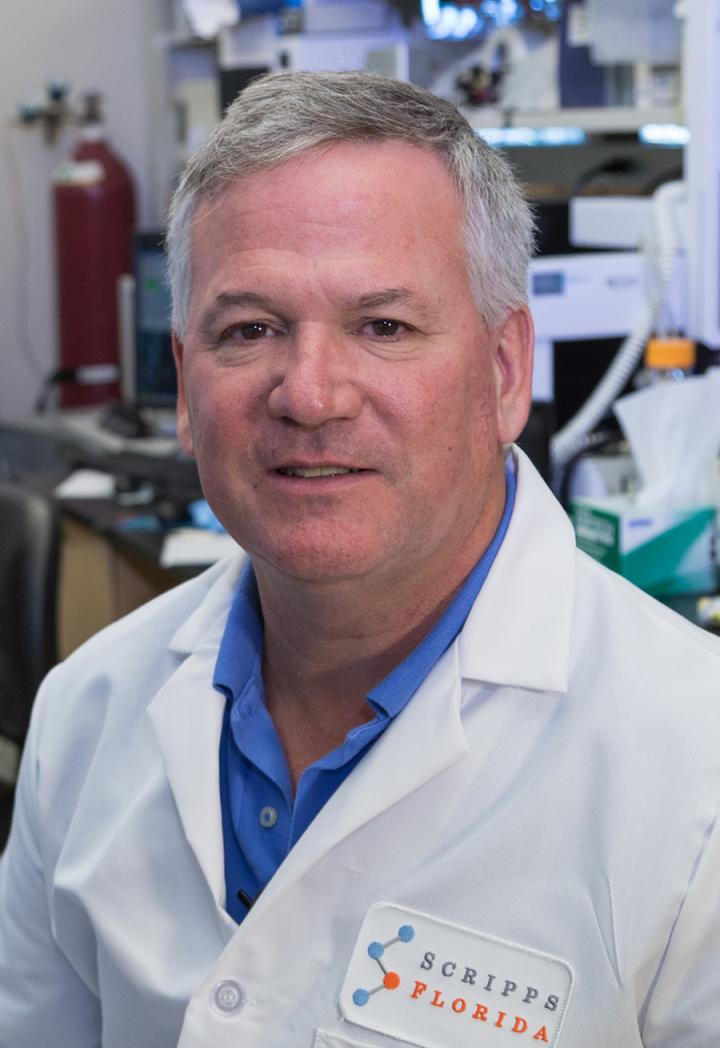
JUPITER, FL – June 7, 2016 – Scientists from the Florida campus of The Scripps Research Institute (TSRI) have been awarded $1.3 million by the National Cancer Institute of the National Institutes of Health to develop novel compounds to enhance the immune system of patients with cancer. Although not aimed specifically at creating drug candidates, these new chemical tools will be used to explore the role of a large family of proteins that has proven to be a rich source of therapeutic targets.
TSRI’s Professor Patrick R. Griffin and Associate Professor Theodore Kamenecka will be the principal investigators (PIs) of the new three-year collaborative multi-PI grant.
The new study will focus on a protein known as the retinoic acid receptor-related orphan receptors (ROR) gamma and molecules that bind to it (ligands) and activate the receptor (agonists).
“There has been significant interest in the ROR family of proteins because they play key roles in energy and fat metabolism as well as immunity,” Griffin said. “Many labs have developed compounds to repress the activity of ROR gamma for use in a range of autoimmune diseases. However, only a few labs, including ours, have described activators of this receptor. This research grant will help us optimize our current set of chemical compounds. These molecules will be used to help trigger immune cells so they will attack and kill tumor cells. The general idea is such compounds will help battle adaptive immune resistance encountered in cancer therapy.”
Mi Ra Chang, senior staff scientist in the Department of Molecular Therapeutics, will lead the development of cancer models for this program.
“Previously we had described a chemical probe that can activate immune cells. This research award will allow us to optimize the potency, selectivity and bioavailability of our ROR gamma agonists,” Kamenecka added. “Optimized probes that have good pharmaceutical properties can then be studied in models of cancer immunotherapy.”
Once that work is completed, the scientists expect to pursue pre-clinical development of the drug candidates.
The number of the grant is R01 CA206493.
###
Media Contact
Eric Sauter
[email protected]
267-337-3859
@scrippsresearch
http://www.scripps.edu
The post Scientists awarded $1.3 million to optimize probes to test new approach to cancer treatment appeared first on Scienmag.





